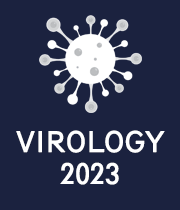Viral Genetic Diversity and Evolution
Virus genome architecture and replication mechanisms are extremely diverse. These fundamental characteristics are related to viral mutability and, as a result, viral genetic diversity and evolvability. Virus mutation rates differ depending on the virus's genetic makeup (RNA or DNA), size, and structure (single- or double-stranded). Viral evolution, pathogenesis, immunological evasion, and treatment resistance are all influenced by population genetic variation. Viruses create and retain genetic variation through a variety of methods, including error-prone replication, repair avoidance, and genome editing, among others. Viral evolution is the accumulation of heritable genetic changes in a virus over time, which might result from adaptations in response to environmental changes or the host's immune response. Viruses can change quickly due to their short generation rates and enormous population densities.
- Co-Phylogeny of Viruses and Hosts
- Deep Sequencing
- Host-Virus Co-Evolution
- Lethal Mutagenesis
- Long-Term Evolution
- Mutation Rate
- Population Dynamics
- Quasispecies
- Virus Taxonomy
- Evolution of Virus Genome Structure

